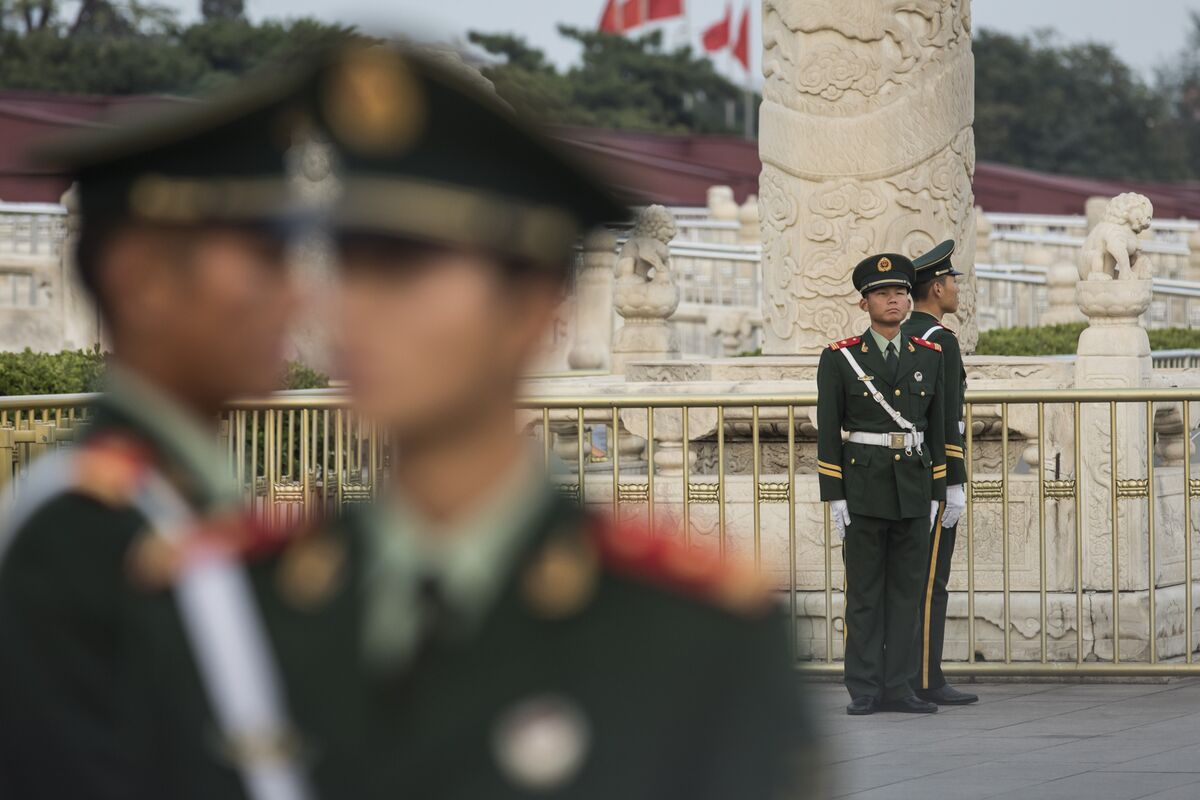Hungary's Resistance To US Pressure On China Economic Relations

Table of Contents
The escalating geopolitical tension between the United States and China is reshaping the global landscape, forcing nations to navigate complex alliances and economic dependencies. Within the European Union, Hungary occupies a unique position, actively resisting US pressure to curtail its burgeoning economic ties with China. This article examines Hungary's strategic rationale, analyzing the economic underpinnings of this relationship, the role of Viktor Orbán's government, the resulting divisions within the EU, and the implications of Hungary's defiance of US pressure.
<h2>Hungary's Economic Dependence on China</h2>
Hungary's economic relationship with China is substantial and multifaceted. Significant Chinese investments have poured into various sectors, boosting Hungary's economy and creating jobs. However, this dependence also creates vulnerability and raises concerns about potential economic consequences if relations were to sour.
- Automotive Industry: Chinese car manufacturers have made significant Foreign Direct Investment (FDI) in Hungary, establishing production facilities and creating thousands of jobs.
- Technology Sector: Investments in Hungary's technology sector are growing, with Chinese companies expanding their presence in areas like telecommunications and information technology.
- Logistics and Infrastructure: The expansion of logistics and infrastructure projects, often linked to China's Belt and Road Initiative (BRI), has improved Hungary's connectivity and trade capabilities.
A significant reduction in economic ties with China would likely have negative ramifications for Hungary, impacting job creation, FDI inflows, and overall economic growth. The potential loss of these economic benefits presents a significant challenge to any policy shift away from China.
<h2>The Role of Viktor Orbán's Government</h2>
Viktor Orbán's government has consistently pursued an independent foreign policy, prioritizing national interests and resisting pressure from external actors, including the US. This approach extends to its relationship with China, driven by a strategic calculation to secure economic advantages and diversify geopolitical partnerships.
The government's rationale for maintaining strong ties with China rests on several pillars: economic benefits, diversification of partnerships to avoid over-reliance on the West, and a counterbalance to perceived Western dominance. However, aligning too closely with China could have domestic political ramifications, potentially alienating certain segments of the population and attracting criticism from within the EU.
Key policy decisions demonstrate Hungary's close ties with China:
- Support for the Belt and Road Initiative: Hungary's active participation in the BRI signals a commitment to closer economic integration with China.
- Opposition to EU sanctions against China: Hungary's frequent resistance to EU-wide sanctions against China highlights its reluctance to adopt a confrontational stance.
- Bilateral trade agreements: Hungary has actively pursued bilateral trade agreements with China, further strengthening economic ties.
<h2>EU Divisions and Hungary's Position</h2>
The EU is internally divided on how to approach China. Some member states favor closer economic ties, while others advocate for a more assertive and critical stance, particularly concerning human rights and trade practices. Hungary's position complicates the EU's ability to present a united front, often acting as a blocking force on initiatives viewed as overly critical of China.
Specific examples of EU policy disagreements where Hungary plays a significant role include:
- Disagreements on sanctions: Hungary frequently opposes or delays the imposition of sanctions against China.
- Differences in trade policy: Hungary's approach to trade with China often diverges from the more cautious approach favored by other EU member states.
- Debate over human rights concerns: Hungary often downplays human rights concerns in its dealings with China, prioritizing economic benefits.
This division weakens the EU's leverage in its dealings with China and highlights the challenges inherent in forging a common foreign policy.
<h2>US Pressure and Hungary's Response</h2>
The US has employed various forms of pressure to encourage Hungary to reduce its economic reliance on China. This pressure has included diplomatic pressure, public statements expressing concern, and the implication of potential sanctions. Hungary has consistently defended its relationship with China, citing economic benefits and the importance of diversifying partnerships.
Specific instances of US pressure and Hungary's responses include:
- Statements from US officials: US officials have issued public statements expressing concern about Hungary's close ties with China.
- Hungarian government responses: The Hungarian government has consistently defended its relationship with China, emphasizing the economic benefits and the country's right to pursue independent foreign policy.
- Reactions from the EU: The EU has remained largely divided in its response, highlighting the internal tensions within the bloc.
For Hungary, resisting US pressure carries both risks and benefits. While maintaining strong ties with China offers economic advantages, it also risks straining relations with the US and the EU, potentially leading to diplomatic isolation and hindering access to Western markets and technology.
<h2>Conclusion: Navigating the Complexities of Hungary's China Relations</h2>
Hungary's resistance to US pressure on its economic relations with China stems from a complex interplay of economic dependence, strategic geopolitical calculations, and the independent foreign policy pursued by Viktor Orbán's government. This stance has created significant divisions within the EU and highlights the challenges of maintaining a unified approach to China within the bloc. Understanding Hungary's unique position is crucial for comprehending the evolving geopolitical landscape and the complexities of transatlantic relations. The future trajectory of Hungary’s relationship with both China and the US remains uncertain, demanding further analysis and observation. Learn more about Hungary's stance on China, analyze the complexities of Hungary's relationship with China, and understand the implications of Hungary’s resistance to US pressure on China to fully grasp the implications of this evolving situation.

Featured Posts
-
 Pitchers Name And The Mets Rotation Is He Ready
Apr 29, 2025
Pitchers Name And The Mets Rotation Is He Ready
Apr 29, 2025 -
 Can Trump Overcome Republican Opposition To His Tax Bill
Apr 29, 2025
Can Trump Overcome Republican Opposition To His Tax Bill
Apr 29, 2025 -
 D C Blackhawk Passenger Jet Crash A Comprehensive Report
Apr 29, 2025
D C Blackhawk Passenger Jet Crash A Comprehensive Report
Apr 29, 2025 -
 The High Cost Of Making An All American Product
Apr 29, 2025
The High Cost Of Making An All American Product
Apr 29, 2025 -
 Key Factors In Deadly Black Hawk And Jet Collision Revealed
Apr 29, 2025
Key Factors In Deadly Black Hawk And Jet Collision Revealed
Apr 29, 2025
Latest Posts
-
 Convicted Cardinal Claims Right To Participate In Papal Conclave
Apr 29, 2025
Convicted Cardinal Claims Right To Participate In Papal Conclave
Apr 29, 2025 -
 Update Missing Brit Paralympian Found Following Wrestle Mania Disappearance
Apr 29, 2025
Update Missing Brit Paralympian Found Following Wrestle Mania Disappearance
Apr 29, 2025 -
 Papal Conclave Legal Battle Over Convicted Cardinals Voting Eligibility
Apr 29, 2025
Papal Conclave Legal Battle Over Convicted Cardinals Voting Eligibility
Apr 29, 2025 -
 Brit Paralympian Missing At Wrestle Mania Found Safe
Apr 29, 2025
Brit Paralympian Missing At Wrestle Mania Found Safe
Apr 29, 2025 -
 Controversial Cardinals Conclave Voting Rights Under Scrutiny
Apr 29, 2025
Controversial Cardinals Conclave Voting Rights Under Scrutiny
Apr 29, 2025
